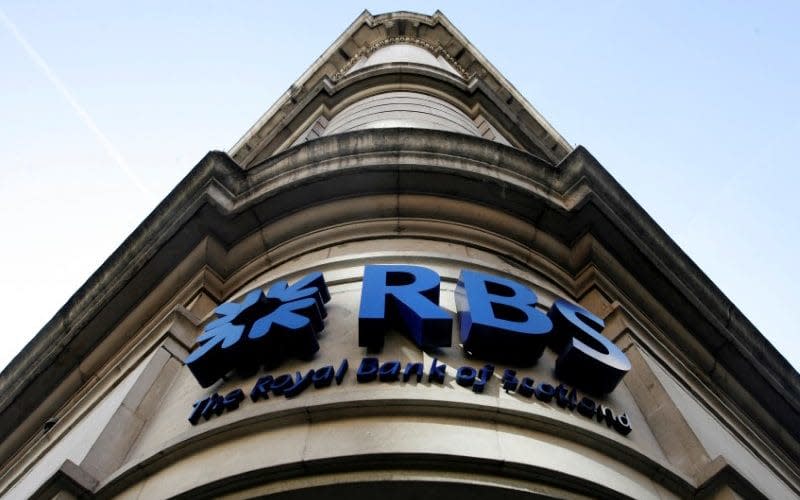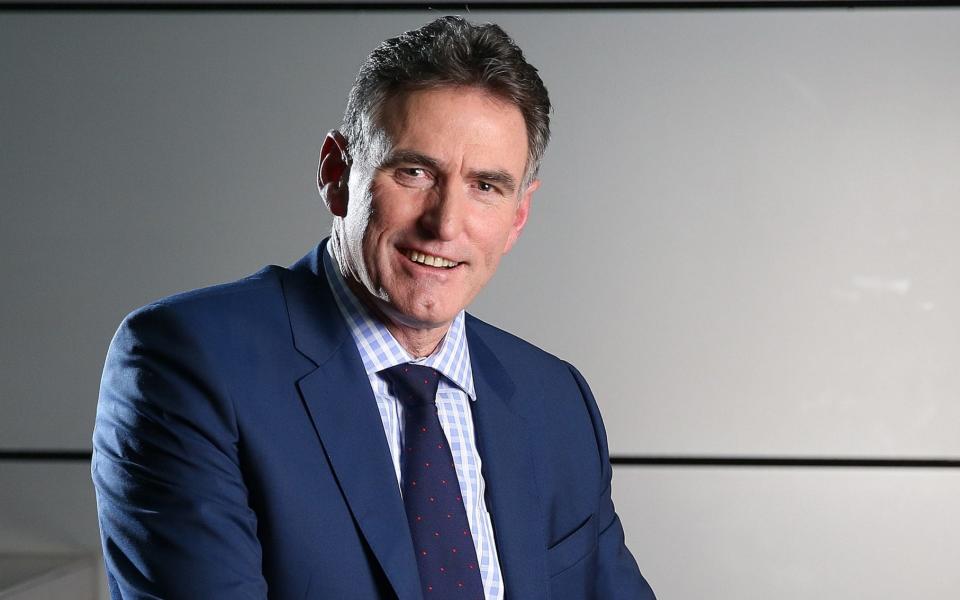Angry investors put RBS in the dock

For John Bradney, going to court is not a matter of money but of principle.
A decade ago, when the financial crisis was approaching its peak, the 75-year-old retired chartered accountant topped up his shareholding in Royal Bank of Scotland through the lender’s record-breaking £12bn rights issue. Just months later, with Britain’s banking system on the brink of collapse, RBS was bailed-out by the taxpayer, inflicting losses of around 80pc on shareholders, including Bradney, who says he lost at least £10,000.
Now Bradney is among 9,000 private investors and about 20 institutional shareholders, ranging from Bank of America and Wells Fargo to a host of local authority pension funds, who are taking RBS and its former bosses to the High Court. The landmark civil action over the 2008 cash call is due to kick-off on Monday and will see infamous ex-chief executive Fred Goodwin reluctantly make an appearance
“I think it’s important that they face the music,” says Bradney, who lives in Rye in East Sussex.
The shareholders allege that RBS misled investors about the true state of its financial health in the run-up to the rights issue and want compensation for their losses. The bank rejects the claims and says it will defend itself “vigorously”.

The allegations set the stage for one of the most expensive, complicated, and high-profile High Court battles in English legal history.
Taxpayer-controlled RBS has already spent about £100m preparing its defence, and has estimated it will accumulate a further £25m in costs during the 14-week trial, sums that have provoked anger among politicians and investors given the bank is fighting its own shareholders.
Beyond the huge legal bill, the lawsuit is significant because it will mark the first time that top British bankers have appeared in court over the events of the financial crisis.
Barring a last-minute settlement, Goodwin, who was stripped of his knighthood in the wake of RBS’ failure, will take to the witness stand on June 8 and June 9. It will thrust the former RBS chief, nicknamed “Fred the Shred” for his aggressive cost-cutting and ruthless management style, into the limelight following years keeping a low-profile after he was publicly vilified for his role in Britain’s banking meltdown.
Goodwin has gone to such lengths to avoid attention that he obtained a super injunction to suppress reports of an affair that he had had with a senior colleague, a draconian gagging order that was only revealed when Lord Oakeshott breached it under parliamentary privilege in 2011.

Tom McKillop, RBS’ former chairman, Johnny Cameron, who was its investment banking head, and ex-finance director Guy Whittaker will take the stand as defendants. But the focus, undoubtedly, will be on Goodwin.
“It’ll be a chance for those people who have lost a lot of money to see who they regard as the perpetrator of this face their day in court,” says Rupert Younger, director of the Oxford University Centre for Corporate Reputation. His uncle, George Younger, was chairman of RBS and stepped down the year that Goodwin become chief executive.
For Ross McEwan, the bank’s current chief executive, the High Court battle represents yet another dark cloud from the past that refuses to blow over.
RBS has been loss-making ever since its £45.5bn bailout at the height of the crisis and remains 71pc taxpayer-owned. It is also yet to settle with the US Department of Justice over claims it mis-sold toxic residential mortgage-backed securities that caused the credit crunch and is still to fulfil all of its state aid obligations to the EU following its government rescue.
To put one legacy of the bailout behind the lender, McEwan has tried to avert an embarrassing court clash over the 2008 rights issue.

In December, RBS put aside £800m to settle with the investors who brought the case, who were originally claiming some £4bn from the bank. However, while 87pc of the claimants have settled, the remaining 13pc - who are represented by an action group - are holding out. Their claim now amounts to about £500m.
“One of the reasons I was keen to get it resolved and put the money on the table was so that the bank could move forward again,” McEwan said on the sidelines of RBS’ annual general meeting in Edinburgh earlier this month. Going to court, “it’ll take the organisation back to 2008”.
In April of that year, when the now-controversial fund-raising was announced, global markets were already in a tailspin as the crisis mounted. Northern Rock had been nationalised in February and Wall Street bank Bear Stearns had been rescued the following month by rival JP Morgan.
At the time, the £12bn cash call by RBS was Britain’s biggest ever rights issue. When it was unveiled McKillop said it was “very much the board’s decision” and that “we have not been asked to raise capital by anyone”.

He reassured investors that the board “unanimously believe that our executive team has all the ability to steer the bank successfully through this tricky period”.
However, by November the Government had been forced to step in - RBS had been crippled by its disastrous takeover of Dutch lender ABN Amro a year earlier - as well as Lloyds and HBOS. Goodwin had also stepped down and investors had suffered catastrophic losses.
The central issue of the trial is whether the bank properly disclosed the state of its health in the fundraising prospectus.
The investor action group argues that if it had, “the rights issue would not have proceeded, or gone ahead on the terms it did,” according to court papers. “Whether or not the rights issue had proceeded, the RBS share price would have collapsed”.
But RBS argues in its defence document that “the prospectus set out accurately and fairly the background to the rights issue”. It argues: “Contrary to the allegation made by the claimants, the rights issue was not forced on RBS by [the now defunct regulator] the FSA.”
If the claimants are proved to be correct, RBS’ legal costs will spiral beyond £125m and the case could drag on for years, as the court quantifies investor losses. Appeals are also likely to drag out the process.
At the very least, the lawsuit will dredge up uncomfortable details about those frantic months when the financial crisis was at its height, threatening to undo McEwan’s efforts to distance the bank from the bailout.

Court documents show that the way the bank was run by Goodwin and the rest of the executive team and directors will come under the microscope, including the practice of holding un-minuted dinners the night before board meetings.
Details of the chief executive’s communications with Hector Sants, who was the head of the FSA, will also be raked over.
Among the numerous controversies thrown up the lawsuit is the revelation that as part of its mounting legal bill, RBS has spent £6.5m paying the legal fees of Goodwin and the other former directors involved in the lawsuit.
The lender says that “it is normal practice under company law, and a legal obligation for the bank, that directors should be indemnified.
But the fact that a taxpayer-controlled company has provided such financial aid to Goodwin, who left RBS a wealthy man, has infuriated shareholders and politicians.
Vince Cable, the ex-business secretary has branded the cost of defending the former RBS directors as “shocking”.
Given there have been question marks about the action group’s ability to fund itself through the trial, there is still speculation the bank could settle with shareholders before the end of the 14 week trial.
But if most of the investors feel like Bradney, it could go the distance. “I’d like to see it go away all the way to the end,” he says.

 Yahoo Finance
Yahoo Finance 